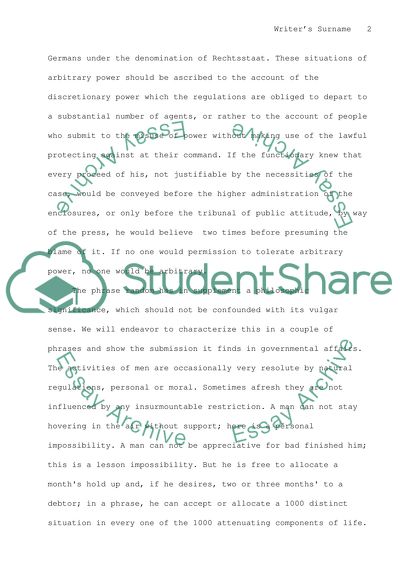Cite this document
(The UK Bill of Rights Assignment Example | Topics and Well Written Essays - 2000 words, n.d.)
The UK Bill of Rights Assignment Example | Topics and Well Written Essays - 2000 words. Retrieved from https://studentshare.org/law/1560989-topic-1-uk-bill-of-right-topic2-can-individual-rights-contend-with-arbitrary-power
The UK Bill of Rights Assignment Example | Topics and Well Written Essays - 2000 words. Retrieved from https://studentshare.org/law/1560989-topic-1-uk-bill-of-right-topic2-can-individual-rights-contend-with-arbitrary-power
(The UK Bill of Rights Assignment Example | Topics and Well Written Essays - 2000 Words)
The UK Bill of Rights Assignment Example | Topics and Well Written Essays - 2000 Words. https://studentshare.org/law/1560989-topic-1-uk-bill-of-right-topic2-can-individual-rights-contend-with-arbitrary-power.
The UK Bill of Rights Assignment Example | Topics and Well Written Essays - 2000 Words. https://studentshare.org/law/1560989-topic-1-uk-bill-of-right-topic2-can-individual-rights-contend-with-arbitrary-power.
“The UK Bill of Rights Assignment Example | Topics and Well Written Essays - 2000 Words”. https://studentshare.org/law/1560989-topic-1-uk-bill-of-right-topic2-can-individual-rights-contend-with-arbitrary-power.


